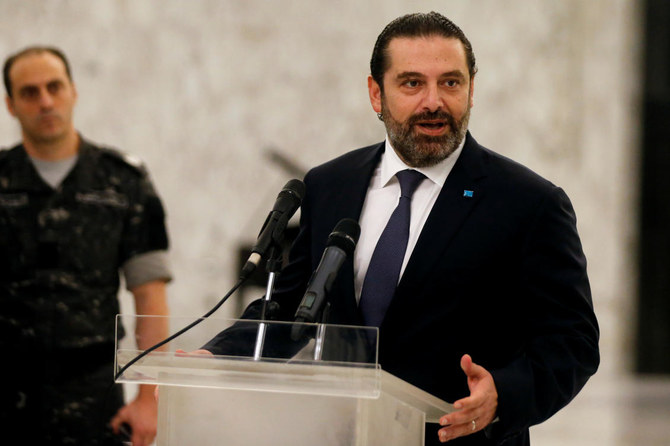
- ARAB NEWS
- 18 Jul 2025

Najia Houssari
BEIRUT: Lebanon’s caretaker Prime Minister Saad Hariri on Saturday added Germany, Britain and Spain to the list of countries he has asked for help securing imports of food and raw materials amid an acute dollar shortage.
The Lebanese leader’s appeal to German Chancellor Angela Merkel, British Prime Minister Boris Johnson and Spanish PM Pedro Sanchez follows an earlier plea to Saudi Arabia, France, Russia, Turkey, the US, China and Egypt.
Lebanon’s call for help highlights the dire state of its economy, which is plunging deeper into recession with warnings by the World Bank of “increasing economic and financial pressures.”
Hariri has called on “friendly countries” to help “address the liquidity shortage, and provide credits for imports to preserve food security and provide raw materials for production.”
The year-long financial crisis in the country has been made worse by strict bank limits on dollar withdrawals and transfers abroad.
Widespread civil unrest and anti-corruption protests directed at the authorities led to the resignation of the government 40 days ago. With no agreement on a replacement PM, the country has been in a state of political deadlock for more than a month.
It is not clear whether parliamentary consultations on Monday will lead to the appointment of a new PM following disagreement between President Michel Aoun and Hezbollah, which want a techno-political government, and Hariri, who wants a government of experts.
Activists on Saturday highlighted the country’s growing economic woes by organizing donations in front of the central bank to help the needy.
The economic stagnation can be felt in Beirut markets, with dozens of shops closed and supermarket shelves lying empty as people prepare for the holiday season.
More than 260 food establishments have been forced to close in the past two months, according to a management syndicate, with the number expected to rise to 465 by the end of the month.
“The crisis is not recent,” said Tony Eid, head of the Beirut Traders Association. “Lebanon is witnessing a lack of liquidity among banks and consumers, and recent developments have aggravated the crisis.
“Hundreds of establishments, including clothing stores and restaurants, are closing, while major importers are struggling to import from abroad,” he said.
“Lebanon is sick and is being treated with painkillers with no signs of early recovery.”
Pierre Achkar, head of the Hotel Owners Association, said that the hotels occupancy rate outside Beirut is “zero,” while it ranges between 7 and 12 percent in the capital.
“This is the sector’s worst crisis in its modern history,” he added.
“Beirut was trying to restore its importance before the crisis, but with reduced banking facilities, we cannot expect tourists to come to Lebanon,” he said. “We are working on a campaign to encourage tourism, but we still have no hotel reservations, which means they have booked somewhere else.”
Achkar said that hotels had shut down 80 percent of their operations, closing some floors and restaurants, in a bid to stay afloat.
Meanwhile, Kamil Abu Suleiman, the caretaker government’s labor minister, formed an emergency committee to oversee legal disputes following collective dismissals.
The ministry considered that “any dismissal carried out without its permission is considered an arbitrary dismissal,” he said. “All those who fall victim to such measures and do not receive their legal compensation should consult the ministry.”